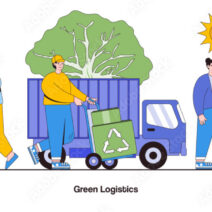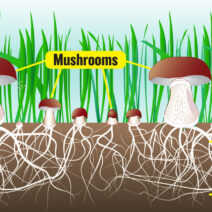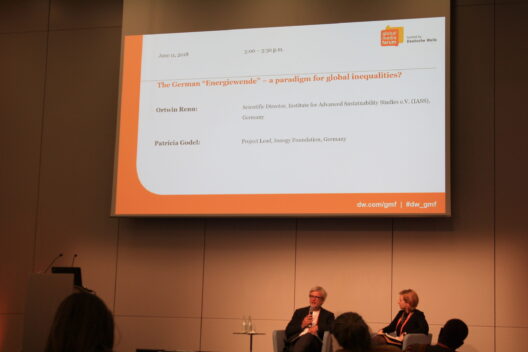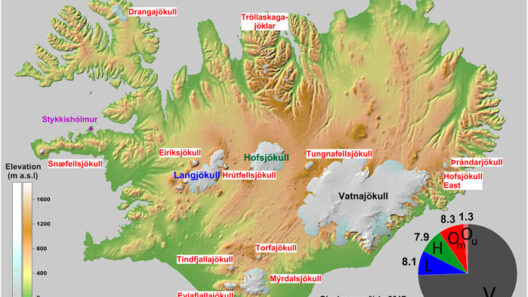Climate change is often perceived as an abstract concept, something that might affect future generations more than ourselves. However, the reality is that its ramifications are already rippling through our daily lives in ways that are often overlooked. As the planet warms due to human activity, the consequences manifest in both overt and subtle forms, many of which will shape our existence far more profoundly than anticipated.
At a fundamental level, climate change disrupts weather patterns. This may seem trivial, but consider the cascading effects. For instance, erratic rainfall patterns lead to droughts in some areas while prompting torrential downpours in others. These extreme weather phenomena destroy crops, compromise food security, and lead to subsequent economic instability. This is not just a problem for farmers; the rising cost of food affects every consumer, from urban dwellers to rural inhabitants, underscoring the inextricable link between climate dynamics and day-to-day sustenance.
Moreover, as our planet warms, the melting of glaciers and polar ice caps is contributing to rising sea levels. Geographic regions that were once thriving coastal hubs face existential threats. Cities such as Miami, New Orleans, and even parts of Manhattan are at risk of flooding, which can lead to mass displacement of populations, loss of property, and a decline in local economies. The displacement of communities not only exacerbates social tensions but also strains infrastructure in areas that receive an influx of climate refugees.
Nevertheless, the effects of climate change extend beyond mere geographical and economic ramifications. They infiltrate public health systems. Rising temperatures foster a more hospitable environment for vector-borne diseases such as malaria and dengue fever. As temperatures creep higher, these diseases may proliferate into regions previously unaffected. This can overwhelm healthcare systems, escalate medical costs, and pose a significant threat to global health.
In urban centers, heatwaves amplify health risks, particularly for vulnerable populations. The structural resilience of cities is stretched thin as the demand for air conditioning spikes, leading to increased energy consumption. This, in turn, exacerbates greenhouse gas emissions, creating a vicious cycle that traps urban areas in a climate quagmire. Vulnerable demographics, including the elderly and low-income families, often lack access to adequate cooling solutions, further exacerbating health disparities related to heat exposure.
The fabric of our natural ecosystems is also unraveling. Wildlife habitats are shifting as species attempt to adapt to changing conditions. Some find refuge in higher altitudes or migrate poleward. However, not all species can adapt quickly enough, leading to potential extinctions and the loss of biodiversity. This may not seem immediately consequential to our lives, but diminishing biodiversity can destabilize ecosystems, leading to decreased pollination and a decline in agricultural yields. Such disruptions threaten the foundational elements of our food systems and have palpable effects on human nutrition.
Furthermore, air quality deteriorates in a warming world. Higher temperatures facilitate the formation of ground-level ozone, a detrimental component of smog. This adversely affects respiratory health, exacerbating conditions such as asthma and bronchitis. Poor air quality undermines overall public health and places a financial strain on healthcare systems. Chronic illnesses resulting from air pollution can lead to increased hospital admissions and lost productivity, further illustrating the interconnectedness of climate health and human health.
Climate change also plays a pivotal role in exacerbating social inequities. Communities with fewer resources often lack the means to prepare for or recover from climate-induced disasters. This vulnerability creates an inequitable burden where marginalized groups are disproportionately affected, leading to increased poverty and instability. As climate crises unfold, the ramifications will be felt most in developing nations that contribute the least to the problem yet bear its most devastating impacts.
As we peer into the future, the economic implications of climate change cannot be ignored. The cost of inaction is expected to soar as infrastructures must be fortified against escalating weather extremes. Natural disasters pose both immediate costs in terms of disaster relief and long-term financial burdens related to rebuilding efforts. Insurance companies are grappling with increasing claims due to climate-related disasters, leading to skyrocketing premiums and potential market instability. The business community must recognize these emerging risks and pivot toward sustainable practices to mitigate further economic damage.
In conclusion, climate change is an all-encompassing challenge that transcends mere environmental concerns, infiltrating every aspect of our collective existence. It jeopardizes our health, affects food security, and exacerbates economic instability- all while raising pressing ethical dilemmas regarding equity and justice. The challenges posed by climate change are profound, making it imperative for individuals to recognize their role. Acknowledgment of the immediacy of these threats is not only crucial for personal awareness but is essential for driving collective action. In confronting the reality of climate change, societies must foster resilience and adaptability to ensure a sustainable future for generations to come.








